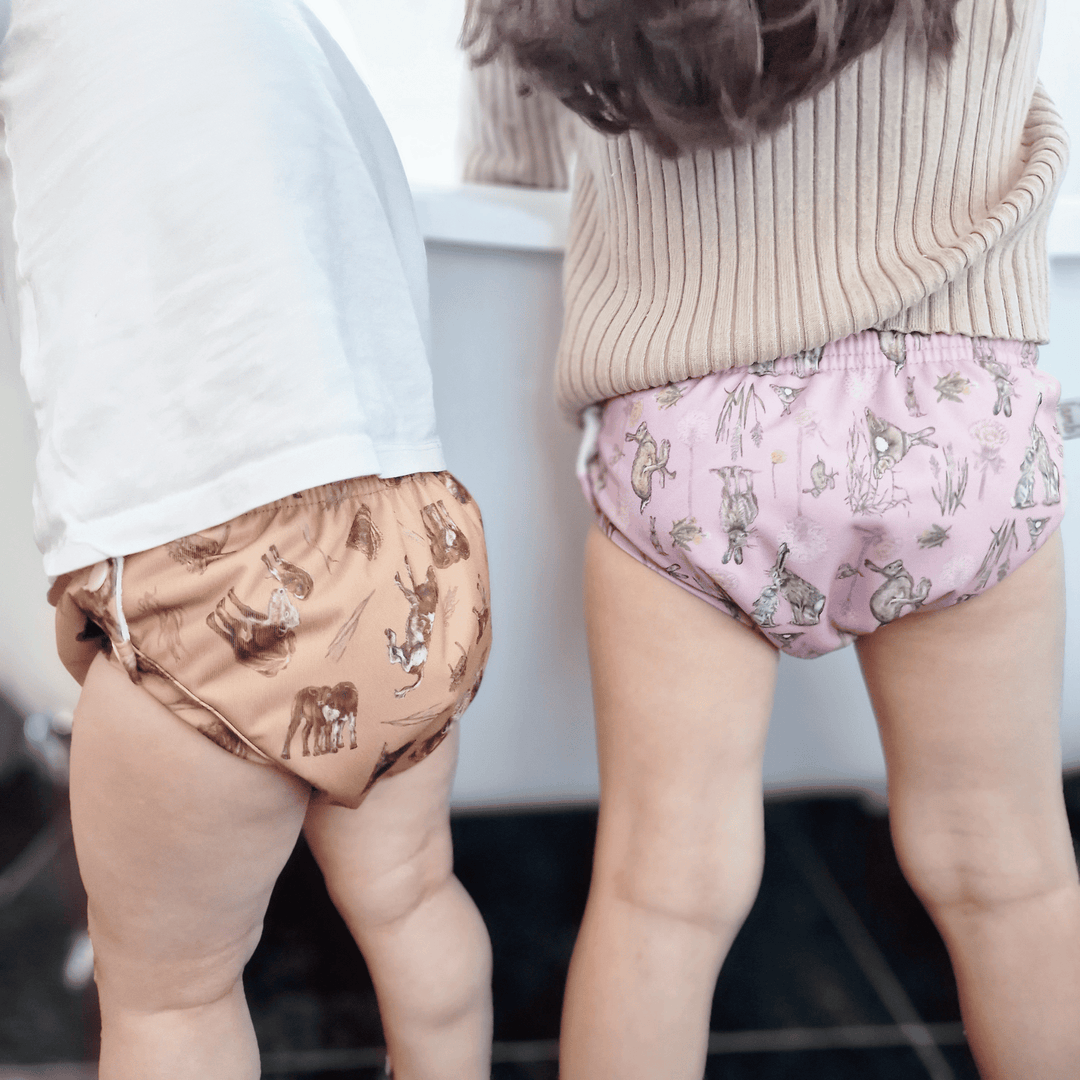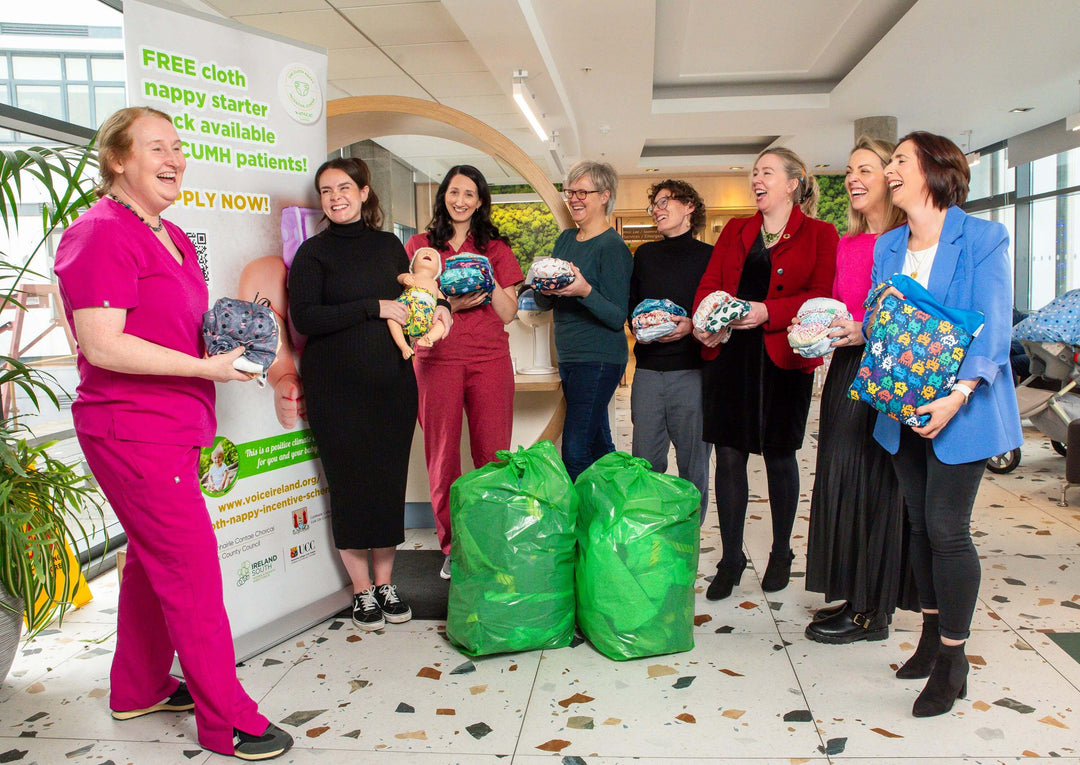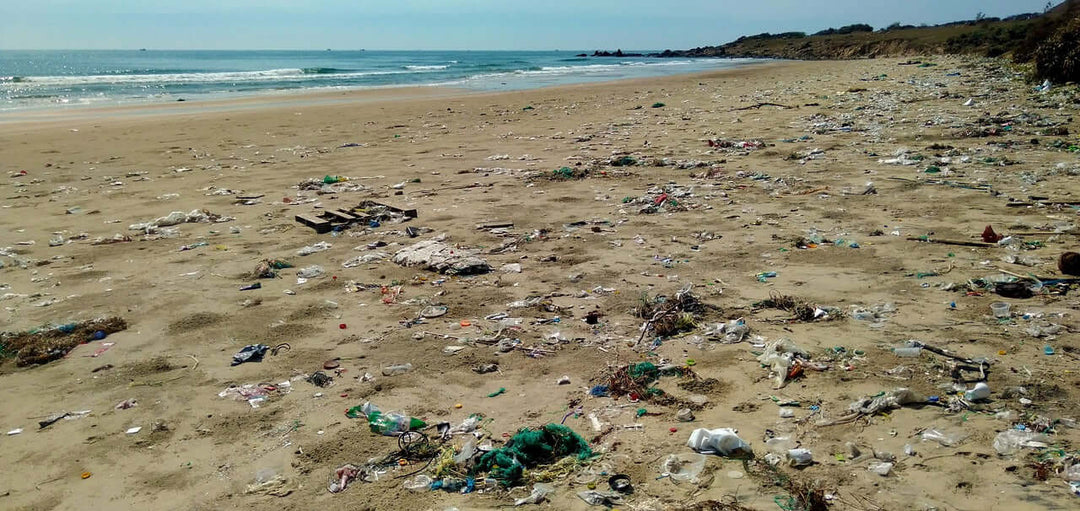Washing 101: Vinegar and Reusable Nappies
Maintaining you reusable nappies is simple when you have an easy wash routine to follow. One of the common mistakes made by cloth nappy users is using vinegar as a cleaner or rinse aid. While vinegar is a natural and effective cleaning agent, it is not recommended for use on your reusable nappies.
What Can Happen if I Use Vinegar with My Reusable Nappies?
-
Acidity levels: Vinegar is an acidic substance, with a pH of 2.5-3.5. When it comes into contact with cloth nappies, the acidity levels can weaken the fibres, causing them to break down over time. This can result in holes and rips in the fabric, reducing the effectiveness and lifespan of the nappy.
-
Deterioration of elastic: Vinegar is known to break down the elastic in cloth nappies, which is an essential component that helps keep the nappy snugly in place. This can cause the nappy to leak, making it ineffective and uncomfortable for your baby. While some nappies can have elastics replaced relatively easily, some styles such as fitted nappies can be extremely difficult.
-
Decreased absorbency: Vinegar can reduce the absorbency of the cloth nappies, making them less effective in keeping your baby dry. This can lead to skin irritation and discomfort, and you'll have to change the nappy more frequently.
-
Damage to the waterproof layer: Many cloth nappies come with a waterproof layer, which is essential in preventing leaks. The acidic properties of vinegar can damage this layer, causing it to lose its waterproofing ability and making the nappy less effective.
-
Potential for skin irritation: While vinegar is known for its cleaning and sanitising properties, it can cause skin irritation when it comes into direct contact with your baby's skin. This can be particularly uncomfortable for your baby and can lead to redness and itching.
In conclusion, using vinegar with cloth nappies is not recommended as it can have negative impacts on the nappy's absorbency, elastic, and waterproofing capabilities. It can also cause skin irritation and reduce the longevity of the nappy. Instead, it's advisable to use a cloth nappy approved detergent that is free of harsh chemicals. This will ensure that your cloth nappies remain in good condition and effectively keep your baby dry and comfortable.




